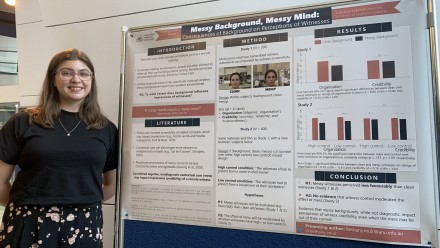Decriminalisation of illicit drugs supports harm reduction
Drug use and dependency occurs in all walks of life with varying outcomes for those who use.
Individuals who end up with a criminal record because of their drug use are often stigmatised. This can lead to long-term social barriers such as lack of employment and housing opportunities, which in turn can impact mental health, financial stability and family dynamics. These consequences can hinder a person’s ability to achieve to their full potential.
A bill that would make Canberra the first place in Australia to decriminalise illicit drugs has been introduced to the ACT Legislative Assembly and a public inquiry is underway.
Associate Professor Anna Olsen, a public health researcher who is one of a team of academics from the Australian National University (ANU) invited to provide evidence into the inquiry says, “Decriminalisation frightens people because it is perceived as a green light for people to access drugs and take them. The truth is, if you look at global research as a whole, considering the legal, cultural and economic contexts, decriminalisation of drugs results in little change to drug use.”
This finding is backed up in the ACT. In January 2020, the ACT decriminalised possession and cultivation of small quantities of cannabis. Over the past year, it has resulted in a 90 percent decline in the number of cannabis offences recorded by ACT Policing, but there has been no increase in the number of hospitalisations related to cannabis use.
This current Bill has been introduced in the hope that it will reduce harms for drug users. In particular, its goal is to reduce criminalisation of use and increase facilitation of treatment for those who need it.
“Decriminalisation does not legalise drugs. Our hope is that the current inquiry will not just reduce the degree to which people who take drugs are penalised, but also lead to better social and health supports that meet their needs, and take a harm reduction approach to drug use,” explains Associate Professor Tegan Cruwys, a clinical psychologist and member of the ANU team that presented to the inquiry.
“Currently, we only have enough treatment places in Canberra for approximately 50 percent of the people that need them. If the inquiry leads to public funding being redirected from the criminal system into the health system, that would be an excellent outcome,” Associate Professor Cruwys advises.
As part of their submission to the committee, the ANU team made recommendations on the legal aspects of the Bill, including suggested quantities deemed for ‘personal use’.
“Our view is that policy should be consistent with the evidence base, and seek to support the wellbeing of the whole community. One issue that we raise in our submission is that the personal use thresholds detailed in the bill are not in line with actual usage patterns in the community. This risks people being prosecuted for dealing drugs when they’re not actually doing that. In order for the bill to be effective, we’ve suggested raising the personal use limits to better match the amounts people actually carry for personal use,” explains Associate Professor Olsen.
Like the rest of the ACT, the ANU research team will now wait to hear whether the Bill will pass in the ACT Assembly.














